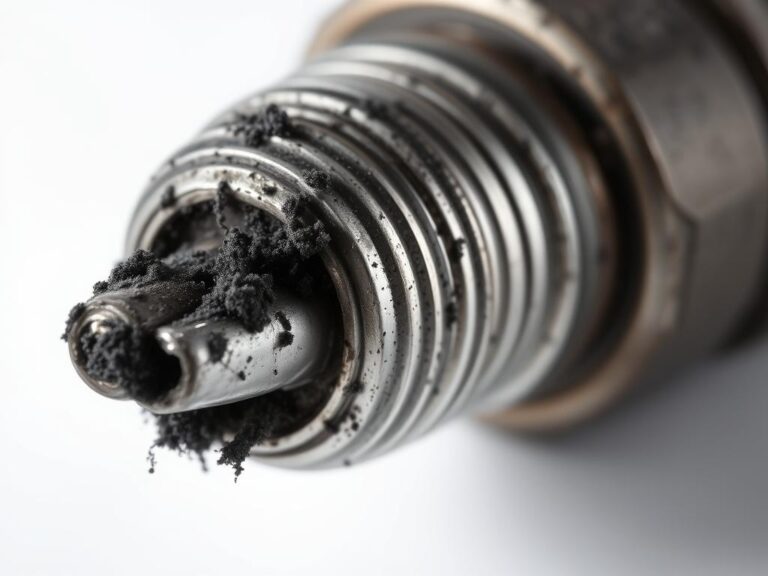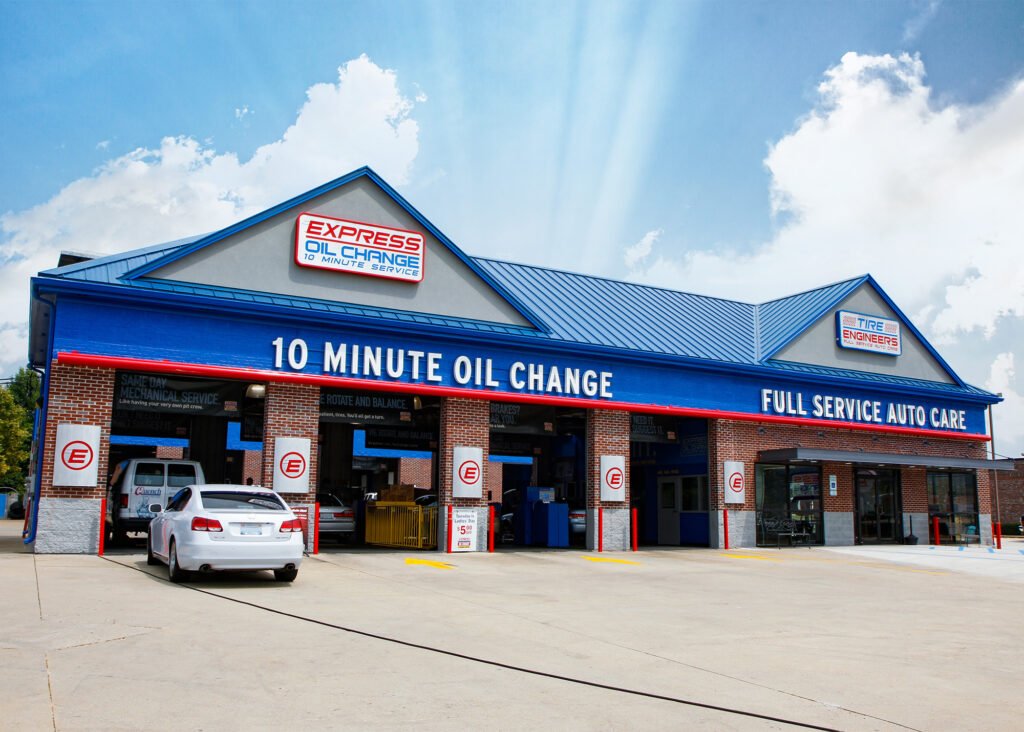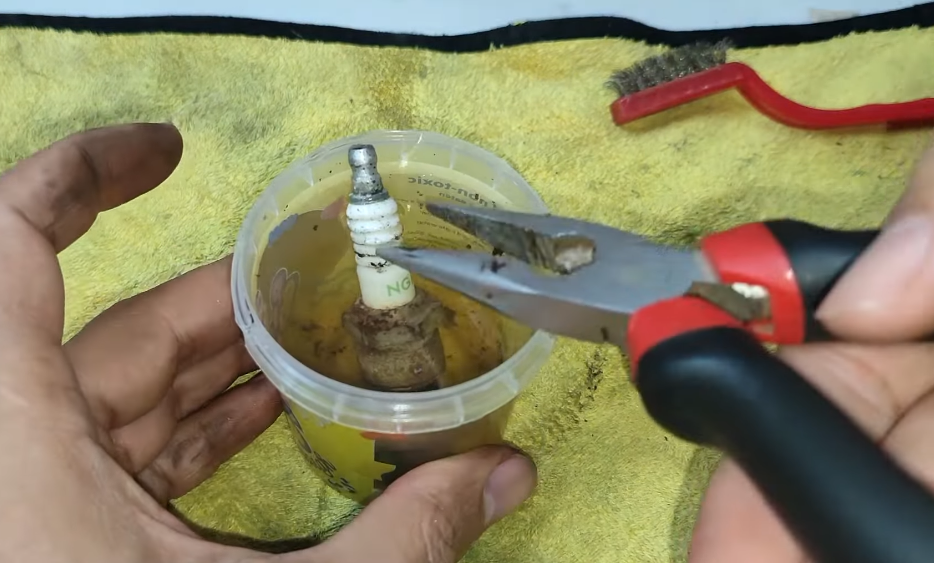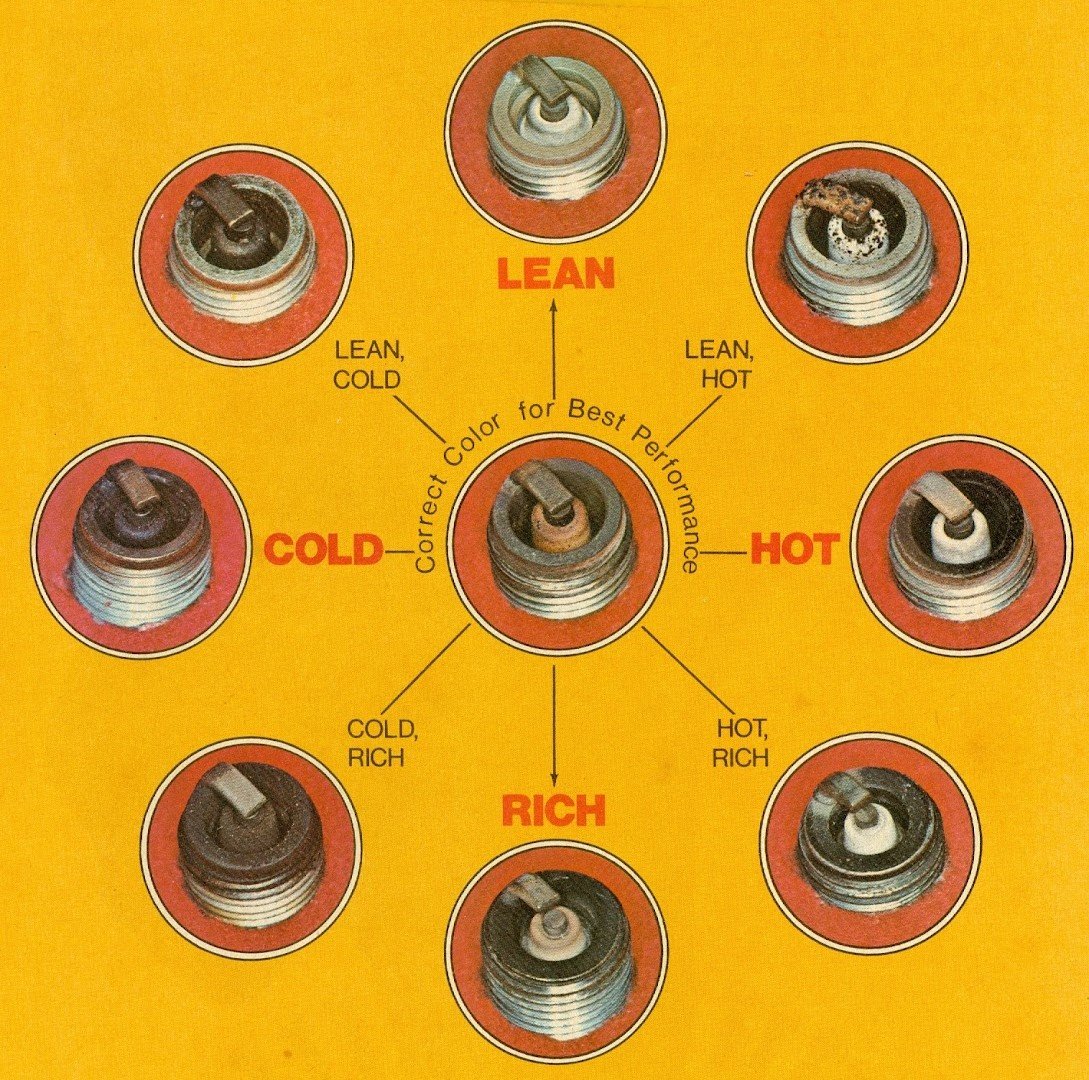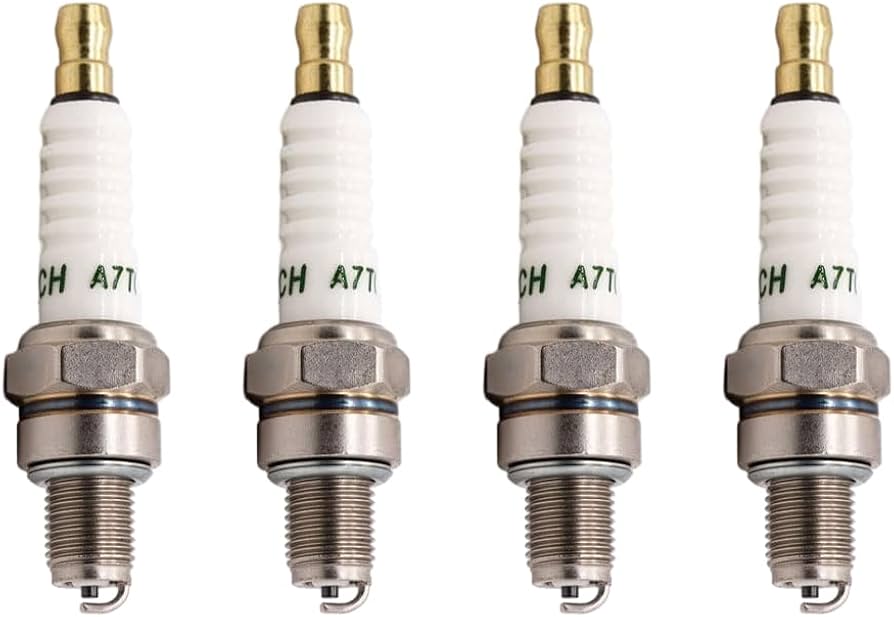What causes spark plugs to foul is mainly due to excess carbon, oil, or fuel deposits on the spark plug, often from a rich air-fuel mixture, worn ignition parts, or oil leaks. This prevents proper ignition and leads to engine issues.
The importance of spark plugs should never be underestimated. Spark plugs are essential to the functionality of the engine as they burn the fuel and air mixture. An ignition system component that is in good condition enhances the operational efficiency of the engine. That said, worn plugs can damage the engine. Engine issues caused by the fouling plugs range from misfires, poor acceleration, and increased fuel consumption. The focus of this article will be the causes of fouling spark plugs, its signs, its effects, and some methods of resolving the problem.

Contents
What is Spark Plug Fouling?
Fouling occurs when the electrodes of the spark plugs gets coated with fuel and oil or with carbon. Fuel ignition cannot take place without the firing of spark plugs, and of the mixture is not properly ignited, the engine is bound to misfire. When fouling occurs, the engine is likely to sustain damage.
Spark plug fouling is classified into various types depending on the cause and the substance responsible for the build up:
For example: carbon fouling is the result of sooty black residue from excessive fuel being used to ignite the engine.Oil Fouling: Occurs from oil leaking into the combustion chamber and resulting oily, dark deposits.
Fuel Fouling: The result of combustion processes failing, and fuel-soaked spark plugs develop.
To resolve an issue of this scale, discovering the root cause of the problem is the most essential step. This, however, is much more difficult than it seems. Let’s look deeper into the most frequent factors that result in spark plugs failing.
Common Causes of Spark Plug Fouling
Spark plugs are essential for engine performance, but they can become fouled due to several factors. Understanding the causes of spark plug fouling is key to identifying potential engine issues and preventing costly repairs.
1. Rich Air Fuel Mixture
When the combustion chamber gets an air-fuel mixture, it is called “rich” if the ratio of fuel is more than the ratio of air. This phenomenon can also be referred to as a “rich combustion” and is the result of a large number of problems, including defective fuel injectors, air filters that are blocked, and even certain malfunctions with electronic sensors that control the combustion chamber, as well as dirty mass air flow sensors. If the ratio is too rich, combustion is never complete which results in large deposits of carbon on the spark plugs.
How It Affects Spark Plugs:
When left unchecked, the abundance of fuel available in a combustion chamber results in rapid and uncontrolled combustion.
The end result, is that the spark plugs do lose their functionality and become fouled.
How to Fix It:
- Replace/clean the air filter.
- Replace defective fuel injectors.
- Conduct Mass Air Flow sensor calibration.
- Oxygen sensor calibration also should be part of the routine.
2. Worn or Broken Ignition Parts
The ignition system for any automobile is the section responsible for producing the spark that is needed for igniting the air-fuel mixture. Part of these system includes the ignition coils, spark plug wires and distributors. Ignition coils, wires and distributors which are broken or worn out will cause the spark to be irregular and weak resulting in incomplete combustion.
Spark Plugs Affected:
There’s a chance for misfires to happen if the spark produced is weak or inconsistent.
Misfires cause the spark plug to become fouled due to the presence of unburned fuel on the spark plug.
Recommended Solution:
- Replace the ignition wires that are worn out.
- Check on the ignition coils and if damaged, replace them.
- Inspect the distributor and rotor, and if they are damaged, replace them for the rotor and distributor.
3. Oil Leaks In The Combustion Chamber
There are certain elements that, when worn out, can cause the oil to leak into the combustion chamber. These elements include the piston rings, valve seals and the head gasket. When oil gets into the chamber, it combines with the air-fuel mixture and can burn during the combustion process, resulting in the formation of burns with the oil which can cause the spark plugs to be fouled.
Spark Plugs Affected:
When oil is burned, carbon and oil on the spark plug are then created.
An oily residue stump realization occurs when oil fouling takes place, resulting from a massive layer of oil covering a specific component, and in this case, oil fouling occurs on a spark plug.
Fixing the Issue:
- Find and seal any oil leaks on the engine, and fix any broken piston rings and leaking valve seals.
- If the head gasket is broken, replace it.
- Make sure the engine is not overly consuming too much oil and check the oil level in regular intervals.
4. Short distance driving
Does driving your car a short distance during the day, often to the point of a city block, seem like it takes a long time to get anywhere? It is in part due to the fact that the engine tends to not reach it’s optimal operating point the way a long drive would. If the engine is not heated enough, the fuel is not burnt and so the result is a buildup of unburnt fuel. Over a long period of time, this uneconomic fuel accumulation is captured within the confining of a spark plug, and canadian exhaust becomes the economic and embarrassing jewel.
How Spark Plugs Are Impacted:
- Sparks are produced when fuel is either consumed or burnt.
- Between carbons deposits clawing, and bursts failing to complete the belt.
Fixing the Issue:
- Whenever it is an option, extend your drive time so that the engine is able to evaporate and reach the fire of the operating point.
- Simply try to take your car on short visits to remove it.
5. Range of Heat for Spark Plugs
Spark plugs can cause many serious issues if there is minimal spacing between engine cylinders. For example, if the cylinder’s spacing is less than the sleep’s width, the engine can begin to overheat. This overheating can lead to very serious spark plug issues, especially if the cylinder’s compression ratio is higher than normal. This can cause the spark plugs to become very hot. The compression inside an engine that can cause the spark plugs to become too hot is 10 to 15 percent.
Effects Spark Plugs on Engine:
Negative impacts of an cold or unfitted spark plugs like the result if the engine is left first can lead to sore engine. This can be done in multiple ways like changing the spark plugs with newer ones fitted with the engine.
How to Solve This Issue:
While the identification of issues is quite evident, the solves do follow after. The make and model of the vehicle is the first and biggest point of contact, and check the spark plugs fitted to designed accurately. This too can be changed if the vehicle’s spark plugs have not been altered in quite some time.
6. Malfunctioning Sensors
Modern vehicles use devices like mass airflow and oxygen sensors to monitor and adjust the air-fuel ratio. Any of these sensors could malfunction and send inaccurate signals to the vehicle’s engine control unit ‘s which may end up making the engine run excess fuel. If the engine is running excess fuel it may end up causing the spark plugs to foul.
How does it affect the spark plugs:
- Fouled spark plugs are the result of carried malfunctioning sensors.
- witha more air-fuel ratio a vehicle’s engine function loses efficiency which increases the amount of gasoline used.
How to Solve:
- Replace mass airflow sensors or oxygen sensors that are malfunctioning.
- Scan the vehicle to check for malfunctioning sensors.
Signs of Having Spark Plugs that are fouled
Fouled plugs can show exhibiting symptoms that can alter the overall engine performance. Identifying the symptoms that a fouled spark plug can cause can help reduce excess damage to the engine.
1. Misfiring of the Engine’s Cylinders: This usually happens if a spark plug does not ignite the air-fuel mixture to power the engine. The engine experiences a bobble. The engine vessels heating up does not help and worsens the condition. Misfires due to spark plugs will make me ignition more difficult due to the thertocharged condition.
2. Rough Idling: If the spark plugs are clogged or dirty, the engine will not be able to idle smoothly. This results in a rough engine when the car is in the stationary position.
3. Sluggish Acceleration: Whenever acceleration is sluggish, there is poor engine combustion. In this case, the spark plugs are firing incorrectly, causing diminish engine power.
4. Excessive Fuel Usage: If spark plugs do not work correctly. In turn, this will cause the car to burn fuel at a rate higher than customary, decreasing fuel economy.
5. Spark plugs, in a car, are images to describe the Faulty Spark Plug Spark plugs, like in other vehicles, turn the check engine light. This may be caused by the engine light cuts down the misfires, the emissions, or fuel efficiency.
Ways to Keep Spark Plug Fouling to a Minimum
It is the lack of maintenance that is the leading cause. As such, there is a whole collection of methods that will improve the vehicle’s performance.
- Scheduled Repairs
If a vehicle is not serviced routinely, neglect the vehicle, unless the filters and plugs are replaced with fabricated ones from the filtration garages available.
- Use Quality Fuel
For the best results, always buy fuel that burns cleanly and completely. Low-quality fuel may result in the accumulation of carbons which leads to eventual fouling.
- Fix Engine Problems Immediately
The moment you start noticing something uncomfortable with the engine like misfiring, poor acceleration, or rough idling, take action. Engine problems are the source of fouled spark plugs and costly repairs that can be easily avoided.
- Avoid Short Distances
If possible, frequent short trips should be avoided as they do not let the engine reach peak temperature. Engine running for prolonged periods can help in reducing the accumulations of carbons.
- Use Correct Spark Plug
Confirm that the specific spark plug you use matches the make and model of the vehicle. Wrongs plugs used in incorrect heat ranges can end up fouling as well as damaging the engine.
Frequently Asked Questions
Here are some FAQs about causes spark plugs to foul –
- Are there any circumstances in which a fouled spark plug can be cleaned?
In this circumstance, a wire bike or specialized cleaner can be used. If the fouling is recurring or is too severe, then it is best to simply replace the spark plugs.
- How regularly should I change my spark plugs?
Spark plugs are supposed to last 30,000 to 100,000 miles. Of course, this depends on the make and model of the vehicle. Always consult the manufacturer on the suggested replacement miles.
- Is it correct that using substandard quality fuel can lead to spark plug fouling?
Yes, using low-quality fuel can lead to incomplete combustion and therefore more carbon on the spark plugs.
- Is spark plug fouling more apparent on older cars?
Older cars with old engine parts or legacy systems tend to get more spark plugs fouling more than newer cars.
- Are vehicle emissions affected by spark plug fouling?
Yes, spark plugs that are fouled increase emissions because of incomplete combustion. This causes more pollutants and lower fuel economy.
Conclusion
Poor mpgs combined with a increase in emissions can be a telltale sign of spark plug fouling. A rich air-fuel ratio, faulty ignition components, oil leaks, and incorrect spark plug heat range can all be causes of fouling spark plugs. Predicting and implementing solutions can be very beneficial. Timely and quality engine repairs with the right fuel helps the engine run efficiently and keeps the spark plugs in great shape.
Cleaning the spark plugs will help the engine run smoother and saves money by improving fuel economy. If the plugs are suspected to be fouled, then action must be taken to avoid engine damage.

